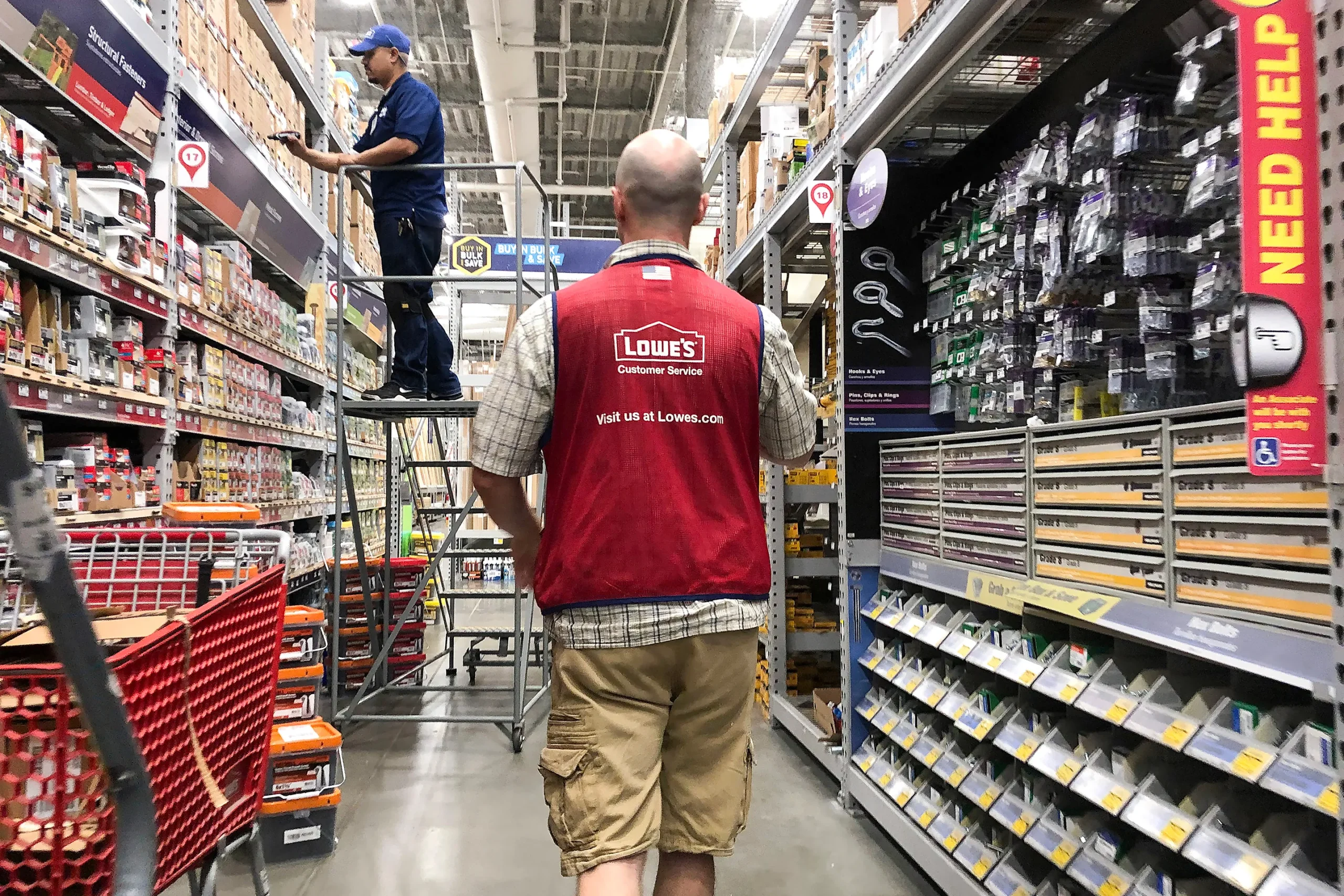Artificial intelligence is no longer just a buzzword in Silicon Valley—it is transforming how we live, shop, and interact with the world around us. One of the clearest signs of this shift is happening in home improvement retail, where Lowe’s Companies, Inc. has partnered with Perplexity to bring the power of AI directly to customers through the Comet browser.
This collaboration marks Lowe’s as the first home improvement retailer to embrace Perplexity’s AI-powered browser, positioning the company at the forefront of contextual commerce—where shopping meets real-time problem solving. Instead of scrolling endlessly through pages of tools, décor, or supplies, customers can now receive intelligent, project-based guidance that simplifies decision-making and saves valuable time.
Meeting Customers Where They Are
Home improvement is inherently complex. A leaky faucet, a sudden need to repaint a room, or a decision to renovate a bathroom can quickly turn into overwhelming projects. Traditionally, customers relied on in-store associates or hours of research online to figure out what they needed.
With Comet, the process becomes intuitive. Users can:
- Ask natural questions—such as “What do I need to fix a dripping kitchen faucet?”—and receive tailored product suggestions from Lowe’s inventory.
- Plan projects more efficiently, with curated shopping lists that account for every screw, sealant, and tool required.
- Compare options seamlessly, balancing price, durability, and availability without juggling multiple browser tabs.
For Lowe’s, this is more than a technical upgrade; it is a way to meet customers at their exact point of need. Whether it’s inspiration for a renovation or urgent problem-solving, AI becomes the co-pilot guiding the journey.
The Power of Contextual Commerce
Retail experts have long argued that the future lies in context-aware shopping experiences. Unlike traditional e-commerce, where customers search for individual products, contextual commerce understands the broader purpose behind each purchase.
In practice, this means Comet doesn’t just suggest a wrench—it suggests the right wrench, plumber’s tape, and faucet cartridge because it recognizes the task at hand. It reduces friction and builds confidence, ensuring that customers don’t get home only to realize they forgot a crucial part.
By embedding this intelligence into the Lowe’s digital ecosystem, the partnership sets a new bar for customer-centric retail innovation.
A Seamless Rewards Experience
To encourage adoption, Lowe’s is tying the Comet experience directly to its MyLowe’s Rewards program. Customers who download and shop through Comet earn 1,000 points—equivalent to $10 in MyLowe’s Money—on eligible purchases made before November 1, 2025.
This approach does three things at once:
- Drives engagement with Comet, ensuring customers experience its AI-powered benefits firsthand.
- Reinforces loyalty, rewarding shoppers not only for buying products but also for embracing smarter ways to shop.
- Simplifies value perception, since every 1,000 points translate directly into a $10 credit on future Lowe’s purchases.
The result is a virtuous cycle: customers save time with AI, save money through rewards, and feel more empowered to take on home improvement challenges.
A Strategic Leap for Lowe’s
Behind this move is a broader strategic vision. Lowe’s has been vocal about investing in technology to serve customers across the “total home”—whether through augmented reality tools for visualizing spaces, mobile apps for order tracking, or now, AI-driven browsers for contextual shopping.
Chandhu Nair, Lowe’s Senior Vice President of Data, AI & Innovation, summed it up well:
“Customers are turning to AI more than ever—whether it’s for inspiration around the home or help solving an urgent issue. At Lowe’s, it’s our job to meet them where they are, supporting their needs across the total home.”
By embracing Perplexity’s Comet, Lowe’s sends a clear message: the future of retail is not just transactional, it’s intelligent and adaptive.

Why AI and Home Improvement Belong Together
The synergy between AI and home improvement might not seem obvious at first, but it’s profound. Both involve solving problems, making decisions under uncertainty, and envisioning better outcomes. AI accelerates this by offering:
- Personalization: Recommending products that fit a customer’s skill level, budget, and design preferences.
- Efficiency: Minimizing wasted trips to the store by ensuring complete project lists.
- Confidence: Guiding DIYers through unfamiliar projects with step-by-step support.
For example, imagine a first-time homeowner looking to install a smart thermostat. Instead of researching compatibility across countless blogs, they can ask Comet directly: “What thermostat works with my HVAC system, and what else do I need to install it?” The AI can surface the right product, installation tools, and even Lowe’s installation service options—all in one place.
Industry Perspective: The Future of Retail
Leaders across tech and retail have praised the Lowe’s x Perplexity collaboration as a signal of where commerce is heading. Commentators point out that task-aware AI agents—like Comet—will become standard in shopping experiences across industries.
For retailers, this creates differentiation. Customers no longer compare only on price; they also compare on ease, speed, and trustworthiness. Those who can reduce complexity while adding value will win loyalty in a crowded marketplace.
By moving early, Lowe’s positions itself not just as a seller of products but as a partner in the customer journey. This evolution—from transaction to collaboration—may well define the next decade of retail.
Looking Ahead
While the initial offer is focused on everyday shopping and quick fixes, the implications are much larger. Over time, AI-powered browsers could reshape how people tackle:
- Major renovations, by generating full shopping lists and timelines for kitchen or bathroom overhauls.
- Sustainability goals, by recommending eco-friendly materials and smart devices that reduce energy bills.
- Emergency repairs, by guiding stressed homeowners through urgent purchases when something breaks unexpectedly.
The Comet partnership is just the beginning. As AI models grow more sophisticated and integrations deepen, the potential to reimagine home improvement from inspiration to completion is vast.

Balancing Tech With Human Expertise
Despite the promise of AI, Lowe’s emphasizes that human expertise remains central. Store associates, contractors, and DIY workshop leaders provide the empathy and experience that no algorithm can replace. The AI tools are there to complement, not substitute, these relationships—streamlining tasks so that human experts can focus on higher-value guidance.
In this sense, Lowe’s isn’t just automating commerce; it’s enhancing customer empowerment by combining the best of both digital intelligence and human support.
Conclusion
The Lowe’s x Perplexity partnership represents more than a marketing promotion—it is a bold step into the future of retail. By embedding AI into the shopping experience, Lowe’s is making home improvement smarter, faster, and more rewarding.
For customers, it means fewer headaches, more confidence, and tangible rewards through the MyLowe’s program. For the industry, it sets a precedent: the era of contextual, AI-driven commerce has arrived.
As AI continues to evolve, partnerships like this will shape not just how we shop, but how we dream, plan, and build our homes. Lowe’s is proving that innovation doesn’t stop at the checkout line—it begins at the intersection of need, technology, and imagination.










